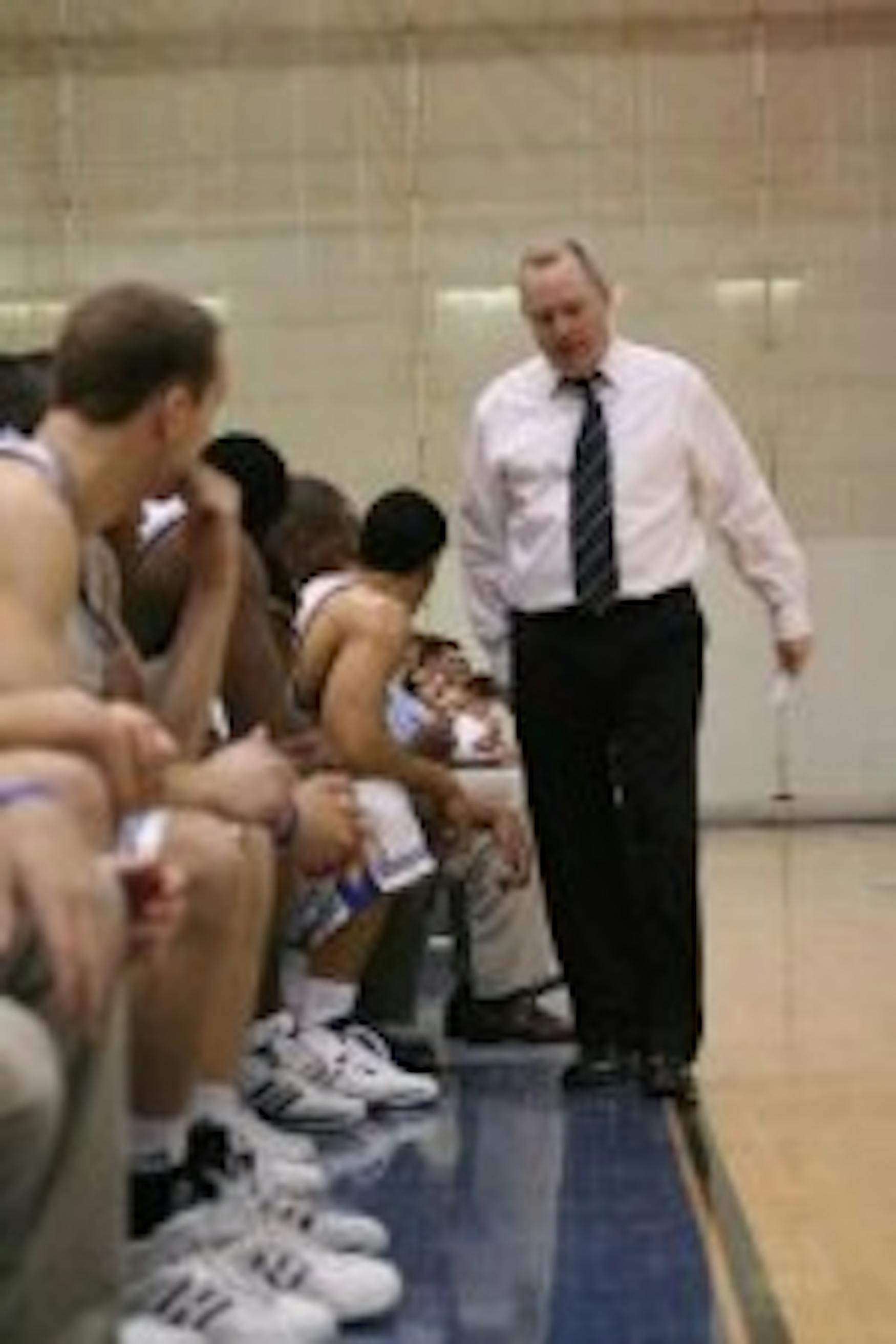COMMENTARY: Current game plan is now ineffective
A team never outright loses a game on one possession, yet one possession can be emblematic of its structural flaws. After Washington University in St. Louis senior center Troy Ruths gave the Bears a two-point lead with 20 seconds remaining in last Sunday's game, the execution of the men's basketball team's last possession would have made even a casual fan cringe. Point guard Kwame Graves-Fulgham '08 unhurriedly dribbled the ball up the court, looking for his go-to guy to bail him out.
Except his go-to guy was sitting in street clothes, sidelined for the rest of the season with a mysterious back ailment.
The best the Judges could do with the 20 seconds they had to set up a play was a desperation three-pointer from Joe Coppens '08 with five seconds left.
Such is life without star forward Steve DeLuca '08, and although it officially took 14 games, it's now clear the Judges miss him dearly. Yes, there's still plenty of time left to pick up the pieces this season, but if there's anything last weekend's losses to WashU and the University of Chicago demonstrated, it's that the time has come for this team to alter its style.
For two full years, the Judges won games with pressure defense that masked a disorganized half-court offense. The devastating full-court pressure led to turnovers and what coaches deem "early offense," in which the Judges got open shots before the opposing defense was set, knowing that such attempts would undeniably be better than any shot garnered in their half-court offense.
Essentially, they won games with effort, not execution. And yet, it worked even against good teams, because when they couldn't create the opportunity themselves, there was DeLuca to bail them out, like he did when he scored 10 overtime points, including a fadeaway three-pointer that left this reporter's mouth agape, to close out the team's first-round NCAA tournament win over Trinity College last season.
Under this system, coach Brian Meehan substituted chronically, because all he needed from his complementary players were quick bursts of energy. Last season, DeLuca was the only player to average over 30 minutes per game, and 10 different players averaged at least 10 minutes per contest.
But without his best player, Meehan has yet to curb this habit. Nine Judges (10 if you count DeLuca in his two games) are averaging over 10 minutes per game this season, and only guard Joe Coppens '08, who is having a spectacular year, is playing over 30 minutes per contest. The same role players that provided bursts of energy last season are being counted on to deliver more, but they cannot develop the necessary rhythm to do so in two-to-three-minute intervals.
This helps explain why Graves-Fulgham can score 18 points and control the tempo against WashU after being a non-factor in last Friday's loss to Chicago. It helps explain why forward Rich Magee '10 was slow covering Ruths in his first start of the season last Sunday, and why forward Stephen Hill '08, relegated to an uncharacteristic reserve role, wasn't much better. Meehan cannot be responsible for Magee's missed layups and fumbled passes, but his lineup shuffling certainly isn't helping.
Of all the constant substitutions, Meehan's limiting of forward Terrell Hollins' '10 minutes deserves special mention. Hollins does struggle at times when his emotions get the best of him, like they did against the Bears last Sunday and the University of Rochester Jan. 20, but he's still the Judges' leading scorer and rebounder, and his passing and scoring skills in the post give the team its best chance to run a decent half-court offense without DeLuca. It makes little sense to limit his minutes, particularly when the alternatives are the raw Christian Yemga '11 and the unskilled Magee.
Last Friday's loss illustrates why Hollins needs to be playing far more minutes for this team to be successful.
The Judges outscored the Maroons by nine points when Hollins was on the floor, garnering easy layups and open jumpers after the Maroons double-teamed him. Yet despite dominating without getting in foul trouble, he played just 26 minutes and was the first starter to leave the game.
Meehan's over-substituting doesn't excuse the team from delivering the defensive stinker it did against the Maroons or being unable to stop Ruths down the stretch. Brandeis didn't double-team in the post aggressively enough in both contests last weekend, and that falls on the players, not the coach.
But after last weekend's losses, it's clear the buck stops at the head coach. Meehan's fabulous record has earned him the right to be given the benefit of the doubt, but relying on the same game plan as last year is going to result in more losses.



Please note All comments are eligible for publication in The Justice.